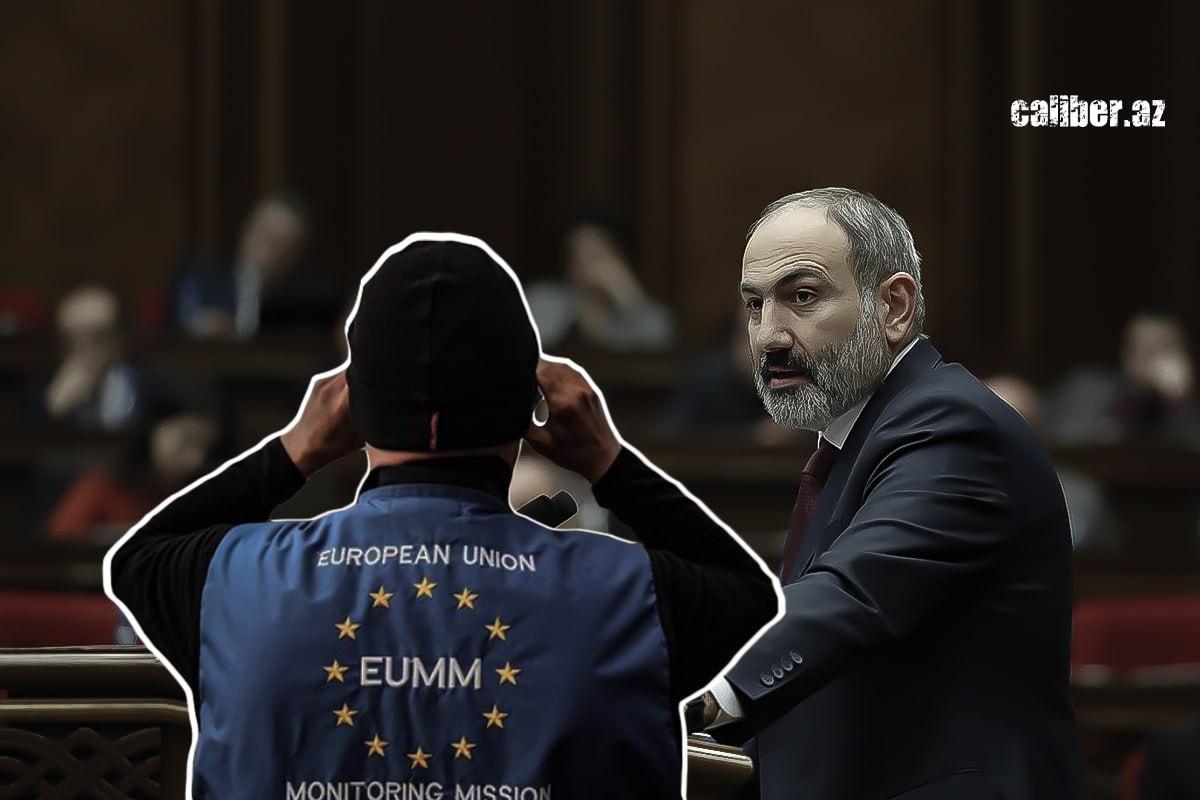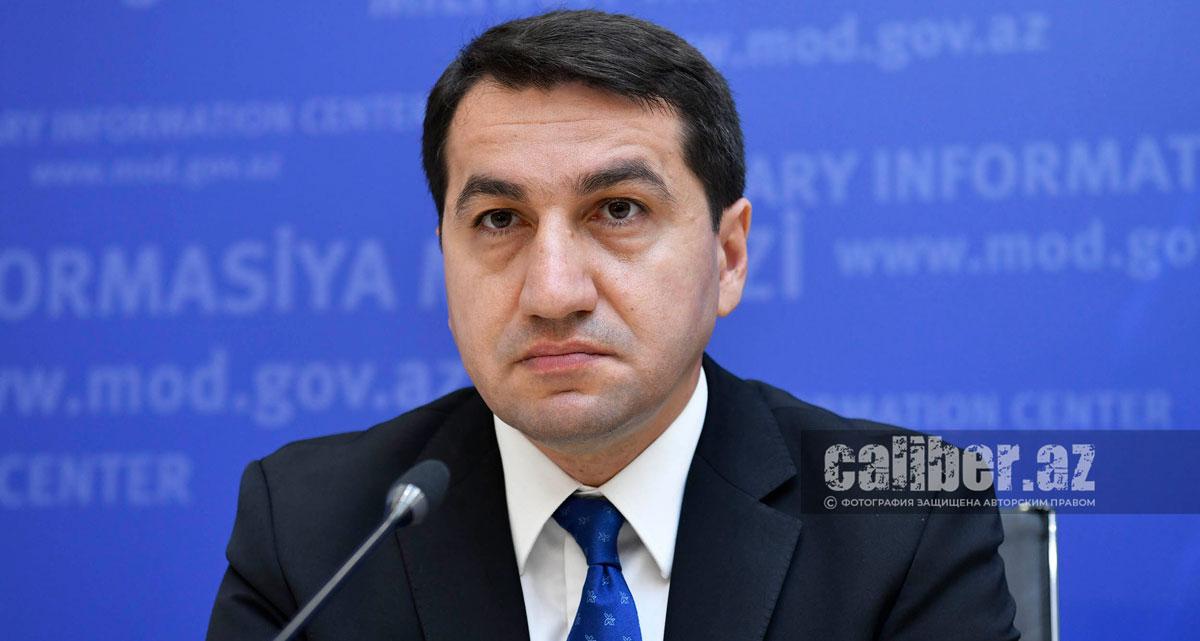EU and Armenia’s covert agenda near Azerbaijani border Yerevan and Euro-Spy Agencies Escalate Tensions
The recent provocation by members of the European Union’s intelligence and observation mission, in conjunction with Armenian military personnel who came dangerously close to Azerbaijan's state border for the purpose of surveilling the territory of a sovereign nation, has once again highlighted the true objectives of the group.
In light of these events, it is pertinent to look back at recent history. On October 7, 2022, the Council of Europe decided to send up to 40 EU experts along the Armenian side of the conditional border with Azerbaijan “with the objective of monitoring, analysing and reporting on the situation in the region.” The mission was set for two months, and on December 19, it was announced that the group's activities had concluded. According to the head of European diplomacy, Josep Borrell, the mission “proved its effectiveness.” However, he naturally did not specify how this effectiveness was demonstrated. He did add that a “a new phase in the EU’s engagement in the South Caucasus” was being formed.
In January 2023, according to information from the European Council portal, an agreement was reached to send a new civilian monitoring mission to Armenia aimed at “building confidence on the ground, and ensuring an environment conducive to normalisation efforts between Armenia and Azerbaijan supported by the EU.” It was noted that the mission was agreed “in response to Armenia’s request,” and the duration of patrolling the territory along the internationally recognized border of Armenia was suddenly extended to two years. Additionally, the number of personnel in the group increased to over 200.

Fast forward to the present, and it is evident that since the beginning of 2024, the activities of the intelligence mission have been framed within the context of a “common security and defense policy.” The implications of this vague terminology became apparent when a brigadier general from the French National Gendarmerie visited the border and conducted a binocular inspection of Azerbaijani territory. Concurrently, a Czech citizen was detained while attempting to cross from Armenia into Azerbaijan.
The situation escalated dramatically on February 12, when an Azerbaijani border guard was injured by a sniper shot fired from Armenia. In response, Azerbaijani authorities launched an operation named Revenge.
The EU, as expected, did not utter a single word about the Armenian provocation and instead took a biased stance regarding Azerbaijan's response. On the same day, EU Ambassador to Azerbaijan Peter Michalko was summoned to the Azerbaijani Ministry of Foreign Affairs, where he was informed that the mission, contrary to its stated objectives, was being used “as an instrument of anti-Azerbaijani propaganda” and had become an agent of “binocular diplomacy,” facilitating visits from various European officials and unofficial delegations to border areas. It was noted that “such visits are used to spread baseless Azerbaijani phobia.” Furthermore, it was emphasized that a previous incident involving the “prevention of an illegal crossing attempt within the mission's area of responsibility casts a serious shadow on its stated objectives.”
However, Yerevan and Brussels continued to escalate the situation in the region. In March, the National Assembly of Armenia ratified a draft agreement between the parties concerning the mission's status, supposedly under the guise of a “representation with diplomatic status in customs and tax matters.” Thus, in the border area with Azerbaijan, European civilian personnel (essentially in uniforms) committed to overseeing customs and tax issues. And all of this is taken quite seriously.
In June 2024, the mission opened a “liaison and assistance office” in Yerevan, intended to “facilitate the implementation of the mission's mandate by strengthening cooperation with local and international partners operating in the Armenian capital.” This office, which became the seventh of its kind in Armenia, was described by the well-known figure serving as the “head of the EU mission in Armenia,” Markus Ritter, as being designed to “promote information exchange and coordination with stakeholders in Yerevan for the successful implementation of the mission's mandate.”
Following this, members of the group proudly announced that “in the first three months since the start of operations, the mission conducted a total of over 300 patrols from its centers, covering nearly 4,000 kilometers weekly.”
In June 2024, the mission opened a “liaison and support office” in Yerevan, intended to “support the delivery of EUMA’s mandate and activities through strengthening the Mission’s engagement with national and international partners in the Armenian capital.” This office, which became the seventh of its kind in Armenia, was described by the well-known figure serving as the “head of the EU mission in Armenia,” Markus Ritter, as being designed to “facilitate exchange and increase coordination with the stakeholders in Yerevan in support of the Mission’s mandate implementation.”
Following this, members of the group proudly announced that “in the first three months, the Civil Mission (EUMA) conducted more than 300 patrols from its Goris, Jermuk, and Martuni operational centres. Every week the patrols cover a distance of more than 3800 km.”

In reality, members of the mission, largely composed of representatives from European intelligence agencies, continued to pursue their intelligence objectives concerning Azerbaijan. As a result, on September 1, presidential assistant Hikmet Hajiyev called for the cessation of the mission's activities, stating that the ongoing process of border delimitation between Baku and Yerevan was taking place “in an atmosphere of mutual understanding,” which negated the need for the “EU border mission from Armenia near the Azerbaijani border.”
Thus, there was nothing spontaneous in the provocative actions of the EU and the Armenian side, operating under the guise of Euro-spies. The objectives of the so-called “civilian mission” are quite clear. Therefore, we conclude this piece with a question posed a few days ago by President Ilham Aliyev: “What are the Western countries that are arming Armenia today are thinking? Do they think we will turn a blind eye?” Following this, the president emphasized that “we must and will ensure our future development and safe life!” urging Yerevan to stop getting involved in “dangerous games” and “should not forget the history of the Second Karabakh War.”








